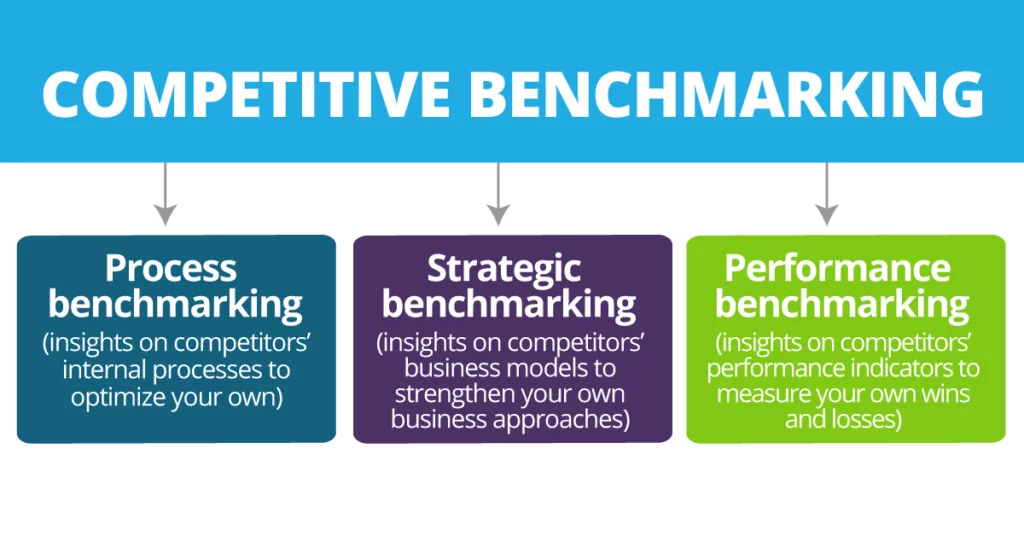Competitive Benchmarking
What is Competitive Benchmarking?

Definition:
“Competitive Benchmarking” is a strategic management process that involves evaluating and comparing an organization’s performance, processes, products, or services against those of its direct competitors or industry leaders. This analysis aims to identify strengths, weaknesses, opportunities, and threats, providing valuable insights for improving performance, setting goals, and maintaining a competitive edge in the market.
Analogy:
Think of competitive benchmarking as a sports competition. Just as athletes assess their performance by comparing it to their competitors, organizations conduct competitive benchmarking to evaluate their standing in the market and identify areas for improvement, strategic adjustments, and innovation.
Further Description:
Competitive benchmarking goes beyond merely looking at financial metrics and extends to a holistic comparison of various aspects, including product features, customer service, operational efficiency, and market positioning. Organizations may employ different methods, such as performance metrics, customer satisfaction surveys, and industry research, to gather data for a comprehensive analysis. This process helps in setting realistic performance goals and making informed decisions to enhance overall competitiveness.
Why is Competitive Benchmarking Important?
Competitive benchmarking is crucial for organizations seeking to enhance their competitive position and achieve sustainable growth. By understanding where they stand relative to competitors, businesses can identify best practices, learn from industry leaders, and make strategic adjustments to stay ahead. It also enables proactive responses to market changes, fostering innovation and continuous improvement.
Examples and Usage:
Product Features: Companies compare their product features, quality, and innovation with those of competitors to identify areas for improvement and innovation.
Customer Satisfaction: Assessing customer satisfaction levels and feedback compared to competitors helps organizations understand their market reputation and areas needing enhancement.
Operational Efficiency: Benchmarking operational processes against industry leaders allows companies to identify opportunities for efficiency gains and cost reduction.
Market Positioning: Analyzing how competitors position themselves in the market helps organizations differentiate their offerings and refine their value proposition.
Basically, competitive benchmarking is a strategic analysis process that involves comparing an organization’s performance, products, or services with those of its competitors to identify strengths, weaknesses, opportunities, and threats.
For example, a tech company might conduct competitive benchmarking to assess how its software features compare to industry leaders, enabling them to enhance their product offering and stay competitive in the market.
Key Takeaways:
- Competitive benchmarking is a strategic management process involving the comparison of an organization’s performance, products, or services with those of competitors or industry leaders.
- It goes beyond financial metrics and includes a holistic analysis of various aspects like product features, customer satisfaction, operational efficiency, and market positioning.
- Competitive benchmarking helps organizations identify best practices, set realistic performance goals, and make strategic adjustments for enhanced competitiveness.
- Examples include benchmarking product features, customer satisfaction, operational efficiency, and market positioning.




